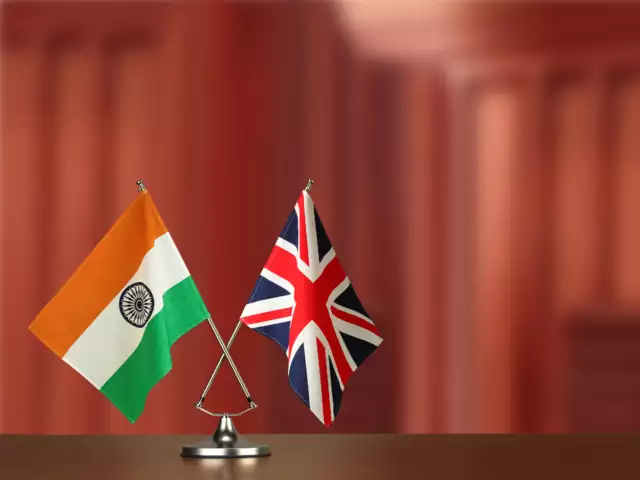India and the United Kingdom are on the verge of finalizing their Free Trade Agreement (FTA), which holds significant promise for both nations. The FTA is a major milestone in their Comprehensive Strategic Partnership, established in 2021, which aims to strengthen bilateral ties and guide their collaborative efforts until 2030. However, several challenges and complexities have delayed the finalization of the agreement.
Negotiations have focused on crucial areas such as rules of origin, intellectual property rights, and professional mobility. While significant progress has been made, three key sticking points remain rules of origin, intellectual property, and professional mobility. These issues need to be resolved to ensure a successful FTA.
The FTA is expected to have a substantial impact on both economies. British exports, such as cars, whisky, and wines, face high tariffs in India, and reduced tariffs could boost their exports. On the other hand, Indian exports, including textiles, clothing, footwear, and agricultural products, could gain increased access to the UK market.
The delay in finalizing the FTA can be attributed to the differing demands of both nations. The UK seeks preferential tariffs for its key exports, while India emphasizes lower tariffs for labour-intensive products. Additionally, there are discussions regarding duty-free electric vehicle trade, which could impede the ambitions of both countries.
India’s External Affairs Minister urges caution in signing FTAs, highlighting the potential impact on small businesses. A thorough evaluation is necessary to ensure agreements are beneficial and improve livelihoods. The UK must consider refraining from contentious demands to expedite the FTA process.
Bilateral trade between India and the UK has seen steady growth, with a 16% increase in just one year. Both nations are actively engaged in economic cooperation and have established dedicated platforms for dialogue and ongoing trade talks. Investments and trade flows further solidify the partnership.
Looking ahead, the fourteenth round of negotiations in January 2024 holds high expectations for a breakthrough. However, officials caution that addressing the toughest issues won’t be easy. India seeks wider access for its skilled professionals, while the UK wants lower tariffs and opportunities in various sectors. The path forward requires exceptional understanding and communication for both parties, but the potential rewards of a robust FTA make it worthwhile.

